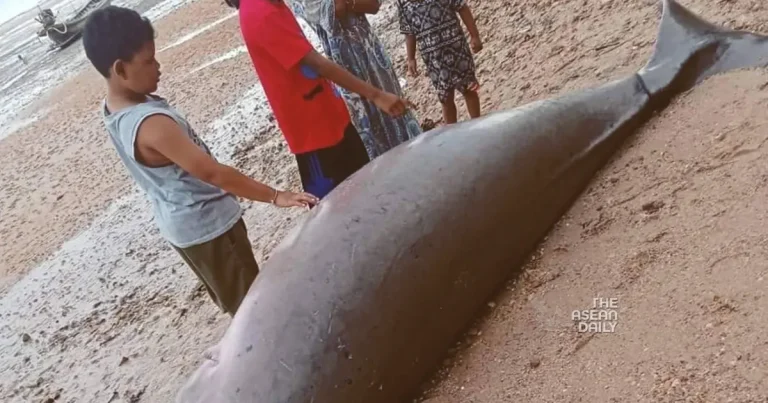11-5-2024 (BANGKOK) Recent fatalities of four dugongs in Krabi have been attributed to a crisis of seagrass degradation, compelling the marine mammals to venture beyond their protected habitats in search of sustenance.
Thon Thamrongnawasawat, a lecturer at Kasetsart University, took to his Facebook account on Saturday to share distressing images of the deceased dugongs discovered between May 7 and 11. Describing the situation as a “red alert” emergency, he emphasised the unprecedented frequency of dugong mortalities, urging the Ministry of Natural Resources and Environment to allocate resources for intervention.
An autopsy revealed that one dugong had succumbed to injuries from a boat collision before washing ashore on Nopparat Thara Beach. Meanwhile, the carcasses of two other dugongs discovered in Phangnga Bay await examination, Thon reported.
The marine biologist highlighted the role of global warming in depleting seagrass beds, particularly in the lower regions of Krabi and Trang, which serve as vital habitats for dugongs. This environmental upheaval has coerced the mammals into seeking alternative food sources in upper Krabi, Phangnga, and Phuket, where the proliferation of tourist boats poses additional risks.
Collaborating with the Department of National Parks, Wildlife and Plant Conservation and other relevant agencies, the Department of Marine and Coastal Resources (DMCR) has initiated studies to raise awareness among boat operators and tourist-related businesses about the presence of dugongs.
An aerial survey conducted earlier this year by the Marine and Coastal Resources Research Center (Lower Andaman Sea) identified 36 dugongs, six bottlenose dolphins, and 38 sea turtles around Libong and Mook islands in Trang. However, the dwindling numbers compared to previous years have raised concerns among authorities.
Since the onset of this year, six dugongs in Trang have been discovered dead after becoming stranded. The majority exhibited signs of malnutrition and illness, characterised by emaciation and the presence of barnacles on their bodies.
The DMCR has underscored the role of global warming in exacerbating the crisis, leading to prolonged exposure of seagrass to sunlight and subsequent desiccation. Such adverse conditions compel dugongs to venture beyond their protected habitats, leaving them vulnerable to accidents and other threats, posing a grave risk to their survival.




